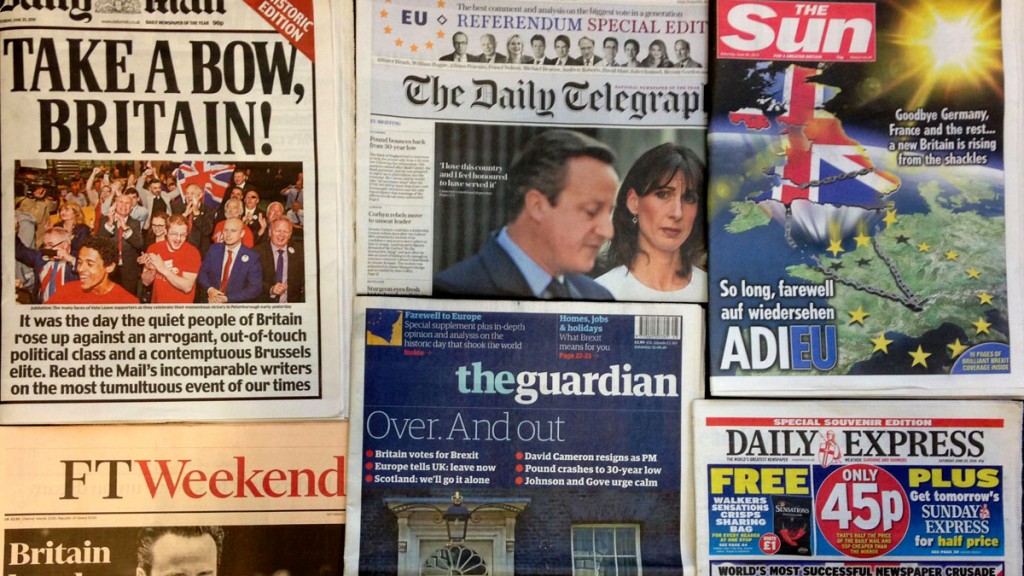
Unsurprisingly the papers have been full of commentary about the implications of Brexit for your personal finances – and their take is generally negative. The Daily Telegraph backed the Leave side, but its share tipster, John Ficenec, still doesn’t “view this as a buying opportunity”. He expects “The FTSE 100 to continue to fall during the next six months”.
As a result, he recommends “holding higher cash balances and reducing equity exposure”. He also likes “corporate bonds, government bonds and gold”. You might also want to think twice about buying that flat – reckons Ficenec – as pressures on sterling might force the Bank of England to raise rates, a “nightmare scenario for the UK housing bubble”.
“Mortgage brokers said buyers were postponing or pulling out of property deals as a result of the Brexit vote,” reports James Pickford in the FT, either due to concerns “economic uncertainty would make their purchase unaffordable” or in the hope “that prices would later fall”. If warnings made by the Treasury prior to the vote are correct, “prices could fall by between ten and 18%”. The effects on property will extend beyond Dover, as “the market for holiday homes on the continent is set to shrink amid currency and economic volatility”.
Older voters voted to quit in large numbers, yet The Times’ Mark Bridge warns that a Brexit recession could push down annuity rates, “potentially costing retirees thousands of pounds of income”. Of course, those who are lucky enough to benefit from a final salary scheme may think that their income won’t be affected whatever happens.
However, Bridge warns that, “the fallout from the Leave vote means that some companies may be unable to honour their commitments”. He also points out that Cameron pledged to ditch the “triple lock” state pension promise in the event that he lost the vote.
The Mail on Sunday’s Sally Hamilton is also downbeat, predicting that, “life’s going to be more expensive”. She believes that “businesses will have no option but to cut jobs, or at least halt or slow recruitment”. Meanwhile, “inflation will rear its ugly head in the post-Brexit world” due to “the higher cost of imports”. This will put “a tighter squeeze on family budgets”. She also notes that chancellor George Osborne has promised tax rises of 2p on the basic rates and 3p for higher rate taxpayers “to plug the giant black hole he predicted would be blown in the nation’s finances”.
However, the Daily Express reminds readers that some things will not change in the short term. For example, “holidaymakers’ rights will not be affected by the UK leaving the EU in the short term”. Until the exit is formally concluded, “travellers are as free to move as before and passports remain valid”. The same applies to European Health Insurance Cards (EHIC) while “passenger rights remain in claims for flight delays and cancellations”. Finally, “you can still bring home unlimited goods and there will be the same rules for using your phone abroad”.